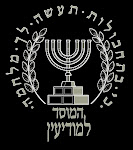This week was one of my favorite Jewish holidays of the year -- and not just because of the rabbinic decree to dress up in costumes and drink yourself into oblivion (although that is a consideration). That's right boys and girls I'm talking about Purim, one of the few great post-King Solomon stories of Jewish triumph. Without going into too many details of Esther's Megillah, I'll give a brief summary of the story:
The Jews are exiled all across the world. A new Persian king, Achashverosh (you may know him better as Xerxes, of 300 fame) comes to power and throws a big party during which he wants to show off his gorgeous wife Vashti by having her dance naked in front of his disgusting princes and ministers. She refuses in one of the first acts of feminism in recorded history. Naturally her drunk, Iranian husband has her killed...and immediately regrets it. He ends up choosing a new wife, Esther - who's cousin Mordechai orders her not to tell her new husband that she's in fact Jewish, lest he divorce her at the thought of having the entire Persian treasury spent on nosejobs and Sak's Fifth Avenue. Mordechai then spends his days sitting at the entrance to the king's palace waiting for word from his cousin. One day he overhears a plot to kill Mr. Xerxes and in one of the first acts of Jewish assistance to their gentile rulers, warns and saves the king so he can go on to kill the Spartans and overrun Greece. Naturally, this act goes unrewarded and instead the Jews are targeted for stereotyping and oppression.
Enter the villain, Haman. The king's new hotshot prime minister is so full of himself that he has everyone bowing down to him on penalty of death. The only man who doesn't do it is Mordechai, in one of the first (and last) acts of Jewish resistance in recorded history. Naturally his arrogant, Iranian persecutor decrees that all Jews must die on the same day as a result. He decides to leave it up to the gods for when this day will occur so he spins a wheel with all the dates of the year on it and picks whichever date it lands on. After being miserable for a few days, Mordechai realizes that destiny has handed him the ultimate trump card. The king's new wife is not only Jewish but she's Mordechai's cousin! Mordechai now has a direct link to the throne - he convinces Esther that she was placed into her position as queen by fate specifically for this reason and she must fulfill her destiny of saving the Jews.
Esther invites the king and Haman to a party just for a three of them and tells Xerxes that Haman plans to kill her. Xerxes storms out of the room to compose himself and Haman begs and pleads with Esther not to have him killed. He throws himself at her feet - just as Xerxes walks back into the room and in a rare (for the Bible) and hilarious misunderstanding assumes he is trying to put the moves on his wife while he is in the house! The ultimate in disrespect!

Xerxes is not amused
Haman is executed - hanged on the same gallows he had built for Mordechai. The Jews are allowed to defend themselves from their Persian attackers and have parties of their own to celebrate. Mordechai is named prime minister instead of Haman (and in true gangster fashion moves into the deposed man's house), Haman's 10 sons are hanged from the same gallows as their father and Xerxes goes to the Greek isle of Ahnus to launch his war against Sparta. All live happily ever after. Except for Leonidus of course.
The holiday is named named "Purim" because it is the ancient Hebrew word for "lotteries" which is how Haman decided which day to exterminate the Jews.
So great story - but is there any real relevance for us today? Well aside from the fact that here we are thousands of years later being threatened by yet another Persian loudmouth there are a few passages which are brought up in this story that speak volumes about Jewish history and culture. For example when Haman is expressing to the king his desire to destroy the Jews he describes them as follows:
יֶשְׁנוֹ עַם-אֶחָד מְפֻזָּר וּמְפֹרָד בֵּין הָעַמִּים, בְּכֹל מְדִינוֹת מַלְכוּתֶךָ; וְדָתֵיהֶם שֹׁנוֹת מִכָּל-עָם, וְאֶת-דָּתֵי הַמֶּלֶךְ אֵינָם עֹשִׂים, וְלַמֶּלֶךְ אֵין-שֹׁוֶה, לְהַנִּיחָם
There is one nation, which is scattered and spread amongst all others, in all the lands you rule. And their views/religious beliefs are different from all others. They refuse to do the will of the king and there is no reason for you to tolerate their existence.
Wow.
Could there be a better description for the way the rest of the world has viewed the Jews for thousands of years? Could there be a better description for the way we Jews have viewed OURSELVES for thousands of years?! And furthermore, later in the story when the Jews come out on top, the narrator describes it in the following way:
בַּיּוֹם, אֲשֶׁר שִׂבְּרוּ אֹיְבֵי הַיְּהוּדִים לִשְׁלוֹט בָּהֶם, וְנַהֲפוֹךְ הוּא, אֲשֶׁר יִשְׁלְטוּ הַיְּהוּדִים הֵמָּה בְּשֹׂנְאֵיהֶם.
On the day in which the enemies of the Jews had chosen to rule over them...it was the opposite as the Jews ruled over those who hated them.
Even then it was considered "opposite day" when the downtrodden, exiled Jews exacted vengeance over their would-be murderers. It is no surprise then that when 10 of the worst perpetrators of the Holocaust were hanged in Nuremberg after the war was over, the subject of Purim came up. The last man to be brought up to the gallows, Julius Streicher made quite a spectacle by screaming "PurimFest 1946!" to the room. What makes it even more interesting (aside from the coincidence of 10 Nazi executions to go with Haman's 10 children) is that the Nuremberg hangings occurred about six months before Purim and there was no reason for Streicher to declare that day as "Purimfest."
Or was there?
Many rabbinic interpreters have pointed to the similarities between the 10 literal sons of Haman and the 10 ideological sons of Hitler. All sought to destroy the Jews. And what makes it even creepier was that there were supposed to be 11 Nazis executed on that day but Hermann Goring (who often dressed as a woman) killed himself by swallowing a cyanide capsule earlier in the day. While it's not in the megillah itself, there is a rabbinic tradition that Haman had a daughter...who committed suicide. Could it be that these 11 murderers were in fact somehow connected to Haman's children? Maybe reincarnations of them? It sounds like something more suited for Halloween than Purim (both holidays also involve costumes by the way).
I have a different interpretation than the rabbis - although I have to admit that's a lot of coincidences and if nothing else, does make a pretty excellent ghost story. Streicher was a master propagandist and expert on Jewish history and culture. It is also extremely likely he was also an admirer of Haman and knew the story of Purim well. So it is only natural that a man who sought the destruction of a people who had historically almost never come out on top of their enemies would think of the Jewish story whose theme was "opposites" on the biggest opposite day of his entire life.
In reality - the only other "opposite days" the Jewish people have had since that Purim were the story of Chanuka (when the Jews defeated the Greeks) and the foundation of the state of Israel (when the Jews defeated an seven Arab nations at the same time). Although one could argue that everyday that Israel exists is another miraculous opposite day that without a doubt drives our current oppressors insane in much the same way that Mordechai's lack of respect for Haman drove him insane.
Here's hoping that we will again soon see a victorious nation of Israel and another Persian oppressor put to the gallows.

Here's to Purimfest 2009...







